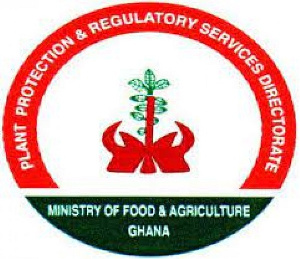 The process is to ensure that products are fully traced
The process is to ensure that products are fully traced
The process is to ensure that products are fully traced through all stages of production, handling and transport/export.
Dr Felicia Ansah-Amprofi, Director of PPRSD, in a speech read on her behalf, said with the implementation of the e-traceability system, commodities could be traced back to its source of production easily in the event of an interception.
Dr Ansah-Amprofi was speaking at a traceability workshop aimed to sensitize stakeholders in Accra.
She said the system also allowed for corrective measures to be put in place immediately thereby minimizing interceptions subsequently.
“It ensures Food safety as it allows the country and supply chains to confidently prove that our foods/products are safe and unrelated from any ongoing food safety incidents,” she added.
The Director said traceability helped in mitigating fraud and counterfeiting of food and maintain customer trust and confidence between an exporter, suppliers and consumer.
Dr Ansah-Amprofi said PPRSD was currently and gradually enrolling from the manual traceability system, all exporters and their coded out growers who are registered with the directorate onto the new system “nppo-ghtrace.org” which is live.
“We began with the vegetable exporters and now moving unto the processors,” she said.
She said under the West African Competitive programme (WACOMP) PPRSD was piloting three products namely process products of Cassava (Ethanol, chips, flour etc), Cosmetics (from shea nuts and coconut) and mango and pineapples (into fresh cut or dried) and this was in collaboration with Ghana Export Promotion Authority (GEPA) and funded by the EU.
She said the pilot programme was successful and “we will enroll all processors of agro-produce unto the system to enable us traced back from point of production to processing.”
This will boost consumer confidence of the export products and increase the country’s export and foreign exchange revenue.
She said the system would give an edge to most of the exporters as they implement the African Continental Free Trade Area (AfCFTA).
Mr Samuel Dentu, Deputy Chief Executive Officer of GEPA, said the Authority had since February 2020 been implementing several activities under the West Africa Competitive Programme (WACOMP) with grant funding from the European Union.
The overall objective of the WACOMP programme is to strengthen the competitiveness of West African countries through an enhanced level of production, transformation and export capacities of the private sectors in line with regional and national industrial and SME support strategies.
The specific aim of the project is to develop Ghana’s competitiveness in the three key value chains of processed fruits (mango & pineapple), cassava and cosmetics and body care products.
He said the objective for Ghana was to achieve increased export revenue from these value-added and processed product sectors of the country.
The Deputy CEO said WACOMP programme was designed to assist Ghana to take more advantage of opportunities in the EU market within the framework of the Economic Partnership Agreement that Ghana signed with the EU.
He said one of the major imperatives of the country’s trade with the EU and indeed with the rest of the world was to improve and enhance our traceability system to support product quality improvement with a view to enhancing our market entry activities.
“This way, we will be able to position made-in-Ghana products and services within the EU and other markets of interest to Ghana,” he said.
He said GEPA would continue to facilitate the training and capacity building of SMEs through the flagship programme called the GEPA Export School on all aspects of export trade.
“We are happy to note that PPRSD, with financial support of GEPA under the WACOMP programme, has already conducted mapping exercises of the three selected value chains for selected out growers’ in the various regions,” he added.
He said the outcome of the mapping exercise forms the bases of these traceability workshops of which the first was held in Kumasi on Tuesday 31st August 2021 and the second one being held in Accra.
The Deputy CEO said the Authority was putting a lot of efforts into the implementation of the new National Export Development Strategy (NEDS) which was launched in October 2020.
The objective of the NEDS is to enable Ghana achieve Non-Traditional Export revenue target of US$25.3 billion by 2029.